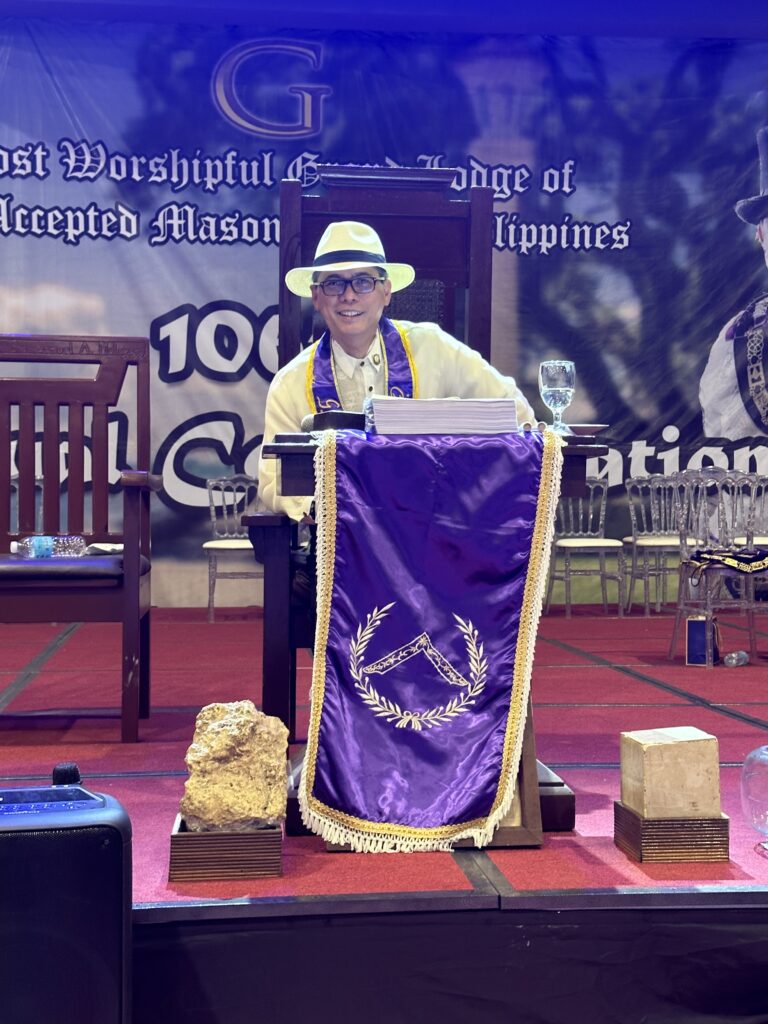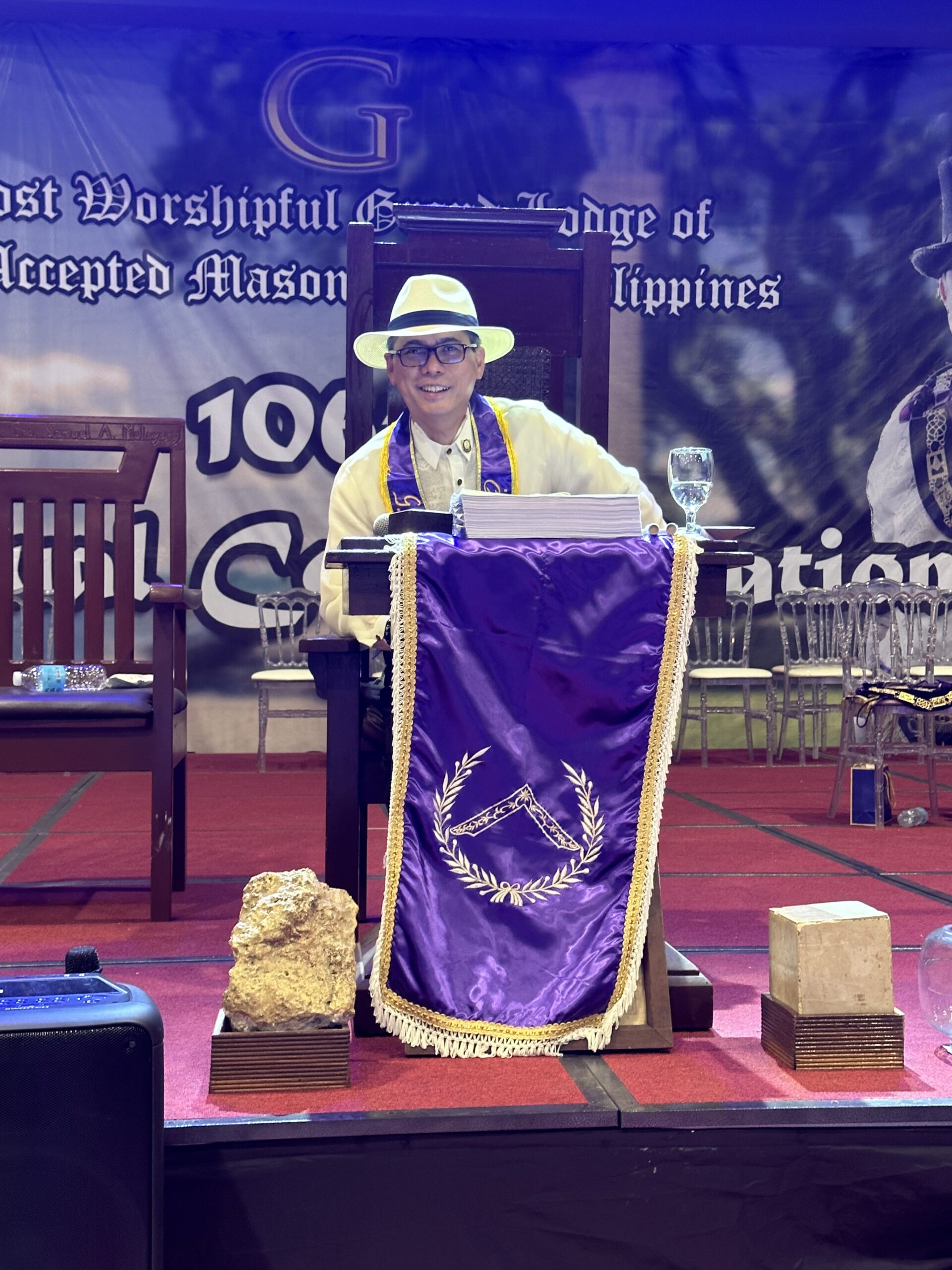Sometimes, people casually ask me what Freemasonry is all about. Being a Mason myself, it is always my pleasure to discuss about Freemasonry, whether with Masons or non-Masons. There are times, however, when opportunity becomes scarce to discuss about it in length, so instead I tell inquiring people the short-version answer that Freemasonry “makes good men better.” It is actually the popular contemporary slogan of Freemasonry as it captures the essence of who we are and what we do. It is SHORT. It is EXACT. And it is SIMPLE. But its shortness somehow counters the length men go through to accomplish this stated task. Its exactness contradicts the diverse methods utilized to achieve its goal. And its simplicity betrays the complexity of the journey we take into actually becoming “better men.”

Admittedly, such is the reason why Masons through the centuries have had a hard time defining Freemasonry. There are many different definitions as there are people trying to define it. There are those who define it, generically but with intentional precision, as an institution or society of men, bound in brotherhood and fellowship, in order to take oaths of improving their lives through methods of initiation into the moral and ethical values that have been tried and proven since time immemorial. There are also those who define it, quite mysteriously yet equally precise, as a peculiar system of morality, veiled in allegory, and illustrated by symbols.
Given the evident disparity, both definitions are obviously far from referring to the same Freemasonry. One is defining an established ORGANIZATION, while the other is defining what appears to be a separate PHILOSOPHY unto itself. One is describing a group of men, while the other, a way of life.
Explaining Freemasonry to non-Masons, therefore, is a task even Masons themselves are having a hard time doing. Often they would sound as disordered and confused as the people to whom they are trying to explain it. Sometimes they would simply revert to instead enumerating the many prominent people who had been Masons – saying things like, “Jose Rizal was a Mason,” or “our Chief of Police is a Mason” – failing to explain the nature and object of Freemasonry itself. It would appear that Masons are themselves unsure as to who they are and what they do.
Let us delve into this peculiarity, as the reason for the confusion is really quite simple: Freemasonry is both a FRATERNITY and a CRAFT, and that those who are defining it are seemingly doing so with only one of the two in mind.
Letting all of us know that Freemasonry is both a Fraternity, which is a group of men joined in brotherhood, and a Craft, which is an exercise, skill, and specific methodology, helps us better understand ourselves as Masons, thus enabling us to properly labor towards the right direction in “making good men better.”
In all my years as a Mason, I have been witness to the greatness of our Fraternity and our Craft. I have been beholden to the wages, rights, and privileges of being a Mason – seeing how brothers support each other in times of need; console each other in times of grief; and assist each other in times of distress. I have seen Masons stand by each other in bad times and in good, but most especially in good; for how can Masons truly have bad times when they have each other’s hands on each other’s backs? All of these I have seen throughout the Fraternity because of the Craft to which Masons adhere – a Craft centered on Brotherly Love, Relief, Truth, Temperance, Fortitude, Prudence, and Justice.
Verbally and ceremoniously, we are constantly bombarded with these moral principles every time we open and close the Lodge; every time we confer our degrees to our candidates; and every time we gather together in fellowship and other social gatherings. It is as if these tenets and virtues are systematically being ingrained and woven into our subconscious, thus becoming natural and integral parts of who we are and what we do.
Yet still, Freemasonry, as a Fraternity, is not entirely perfect, being composed of men who are inherently imperfect. Sometimes we encounter quarrels, conflicts, and misunderstandings between Masons. Has the Fraternity failed in such instances? Has the Craft?
Examining closely the many grievances filed in the Grand Lodge by conflicting Masons, we discover, without surprise, that the root cause of their disagreements is not the Fraternity nor the Craft, but rather their FAILURE and REFUSAL to stay true to the existing rules of the Fraternity and to the values taught by the Craft. Freemasonry has not failed men, rather men have failed Freemasonry.
Over the course of many contemplative brain-storming sessions I have had with some of the most notable Masonic thinkers of our time, which I have had the pleasure of meeting and knowing, the most commonly proposed solution to such conflicts is not to change Freemasonry, both as a Fraternity and as a Craft, but rather to instill among its members the fundamental nature and purpose of Freemasonry that has already been defined since the time of its conception. We do not need further rules and regulations for each and every situation in order for us to distinguish right from wrong. What we need are fundamental sets of ideals on how to meet, act, and part as Masons; and Freemasonry already has these, imbedded within its ceremonies. All we have to do is abide by them. We have our WORKING TOOLS to help us apply their moral, ethical, and speculative significances such as time management, self-control, discernment, tolerance, and upright living. We have our DEGREE RITUALS that instruct us to learn the liberal arts and sciences, along with faithfully upholding the obligations we took for the benefit of our brethren, our families, and ourselves. We have our OBLIGATIONS that we swore before our brethren to answer their call to service; to help and protect them in times of distress; extending such protection to especially include the women in our lives – our wives, our daughters, our mothers, and our sisters; and being personally accountable for our own actions and decisions, including their consequences. Are these not enough to facilitate effective Masonic intermediation to arrive at a compromise where all could best work and best agree? More importantly, are these not enough to avoid conflicts among our brethren in the first place?
Just when our basest of human passions – such as greed, pride, lust, or self-interest – get in the way of ourselves, we only need to learn to subdue them using the lessons of our WORKING TOOLS, our DEGREE RITUALS, and our OBLIGATIONS. Only then can we hope to come close to improving ourselves in Masonry, thus becoming better men than we were before. This is who we are and what we do. We are Masons, and we labor to better ourselves for the benefit of the society to which we belong. This selfless nature and intent makes our Fraternity and our Craft truly a cut above the rest. Whereas the rest of world strive to better themselves for their own sake, we Masons do so for the rest of mankind.
